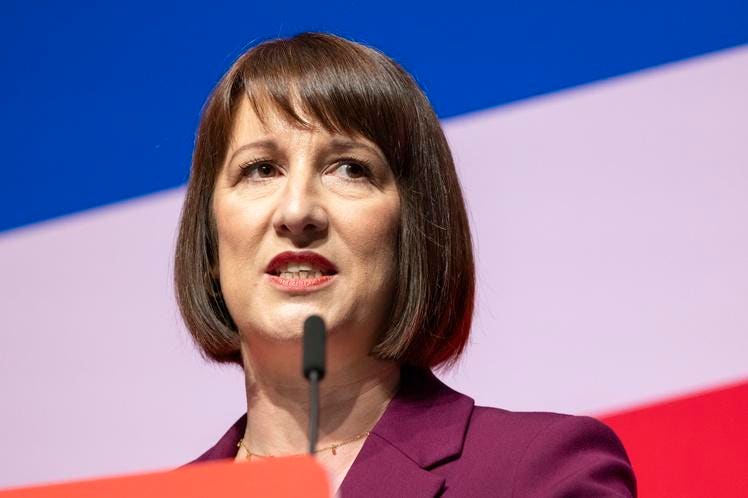UK Economic Growth Forecast Downgraded Amidst Business Backlash Against Labour’s Tax Hikes
The Confederation of British Industry (CBI), a prominent employers’ organization, has revised its economic growth projections downwards, citing the impact of new tax measures introduced in the Labour government’s recent autumn budget. The revised forecast paints a gloomier picture for the UK economy, with growth now projected at 1.6% for 2025, down from a previous estimate of 1.9%. The CBI also trimmed its growth outlook for the current year to 0.9%, down from 1.0%. This downward revision comes amidst a wave of criticism from the business community, which argues that the new tax burdens will stifle investment, hiring, and overall economic activity.
The core of the discontent lies in the substantial tax increases announced by Finance Minister Rachel Reeves, described as the largest in three decades. Reeves justified the hikes by pointing to a purported £22 billion fiscal "black hole" inherited from the previous Conservative government, a figure disputed by the Conservatives and other sources. The tax increases, which include a hike in the employer’s National Insurance contribution rate from 13.8% to 15% and a lowering of the threshold at which employers start paying National Insurance, have been met with strong resistance from businesses. They argue that these measures will significantly increase their costs, ultimately leading to higher prices for consumers and potentially job losses.
The CBI’s revised forecast is underpinned by a survey revealing a significant deterioration in hiring intentions among businesses following the budget announcement. This aligns with concerns expressed by businesses that the increased tax burden will constrain their ability to invest and create jobs. The CBI’s chief economist, Louise Hellem, emphasized that these measures are coming at a time when businesses are already grappling with squeezed profit margins, further exacerbating the challenges they face. The combination of rising costs and diminished hiring intentions raises concerns about the overall health and trajectory of the UK economy.
The Bank of England has echoed the CBI’s concerns, reporting that a majority of companies surveyed anticipate raising prices and cutting jobs in response to the budget. The bank’s survey revealed that 54% of respondents expect to increase prices, while the same proportion anticipate reducing their workforce. Furthermore, 38% of respondents indicated they would pay lower wages than they otherwise would have. This data reinforces the narrative that the new tax measures are likely to have a negative impact on both businesses and employees, potentially fueling inflationary pressures and contributing to job losses.
The business community’s apprehension is not limited to large organizations. Prominent figures like billionaire industrialist James Dyson have also voiced strong criticism of the budget, labeling it an "egregious act of self-harm" on the economy. Dyson argues that the combined impact of the National Insurance increase and changes to inheritance tax on family businesses will stifle entrepreneurship, wealth creation, and economic growth. This perspective highlights the concern that the tax hikes will not only impact existing businesses but also discourage the formation and growth of new ventures, further hindering the UK’s economic dynamism.
The Labour government’s defense of the tax increases rests on the argument that they are necessary to address the inherited fiscal deficit and fund essential public services. However, the widespread backlash from the business community, coupled with the CBI’s downgraded growth forecast and the Bank of England’s survey findings, suggests that the government’s fiscal strategy carries significant risks. The potential for higher prices, job losses, and suppressed investment raises questions about the long-term economic consequences of these measures. The debate over the budget’s impact is likely to continue as the UK navigates the challenges of a changing economic landscape. The key question remains whether the government’s chosen path will ultimately lead to sustainable economic growth or exacerbate existing economic vulnerabilities.


